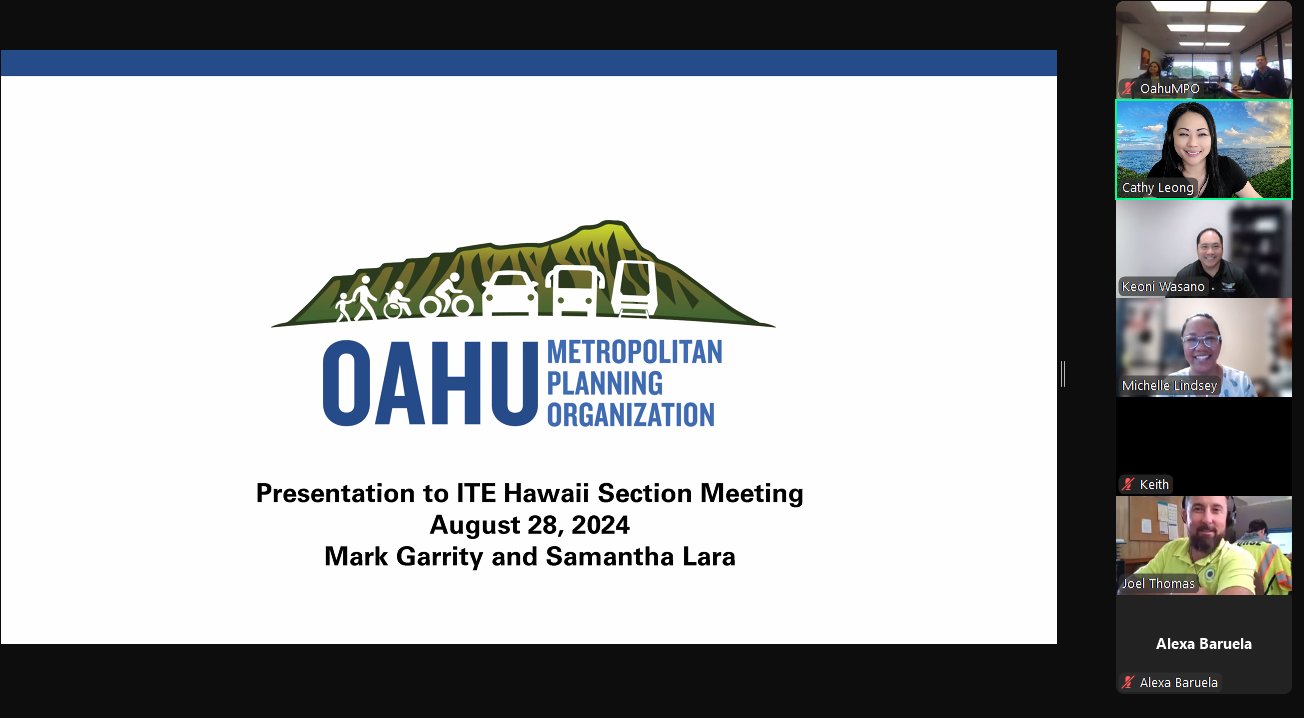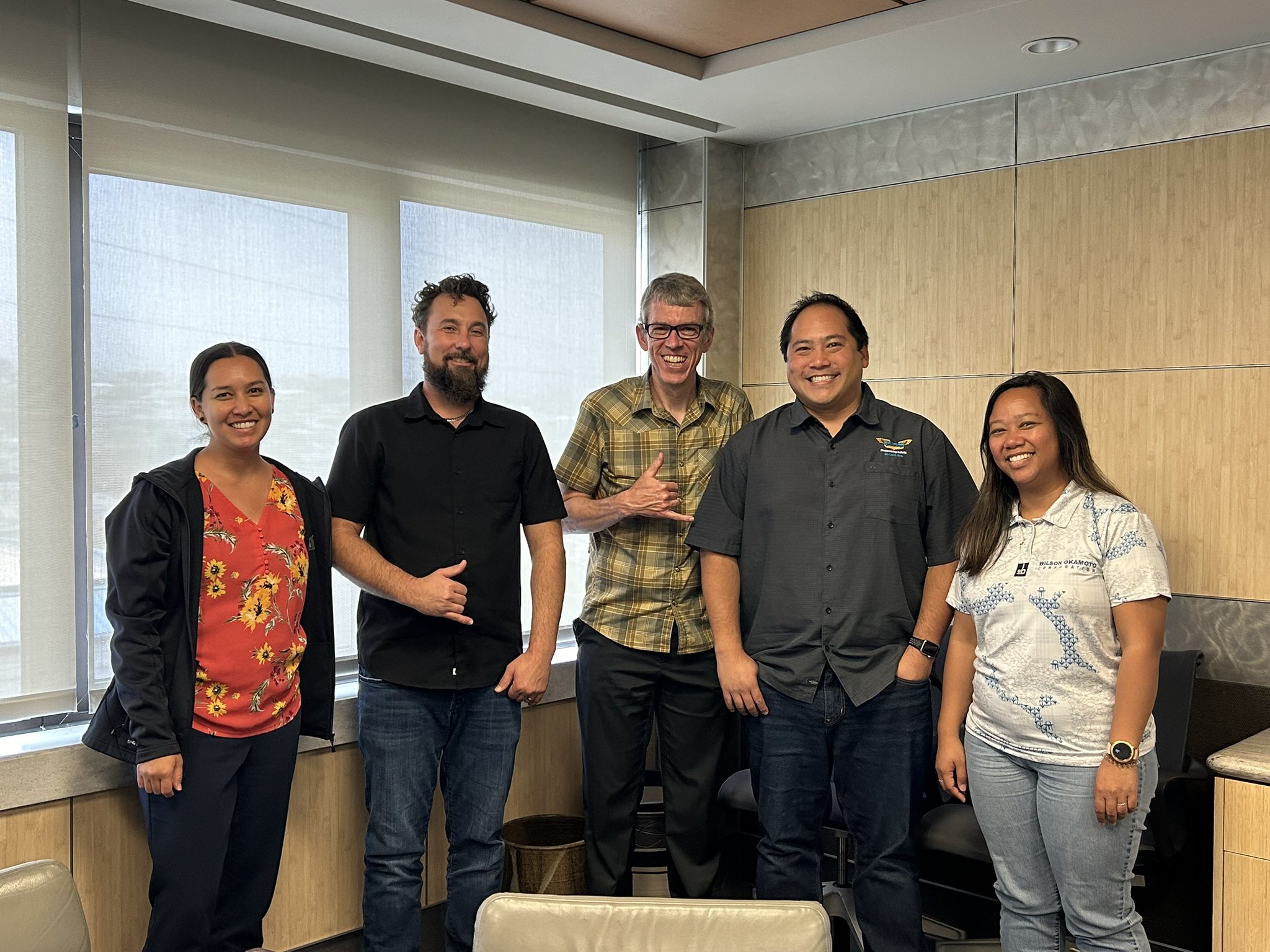November Meeting Summary
The November luncheon meeting was held on November 8, 2006 at the City Annex. The guest speaker was James H. Pietsch, Professor of Law at the University of Hawaii at Manoa and Director of the University of Hawaii Elder Law Program (UHELP). Mr. Pietsch presented highlights from a document he had prepared entitled “Deciding “What If?”: A Legal Handbook for Hawai’is Caregivers, Families, and Older Persons. The handbook was published in cooperation with the City & County of Honolulu Elderly Affairs Division, Hawaii County Office on Aging, Kauai County Agency on Elderly Affairs, and Maui County Office on Aging, with funing from the U.S. Administration on Aging. Some of the topics covered by the handbook include:
- Incapacity, guardianship, alternatives to guardianship and protective services
- Medical treatment and health care decisions
- Financing health care, including long-term care
- Hiring a caregiver, coping with death, finding a lawyer
——————————————————————————–
October Meeting Summary
The October luncheon meeting was held on October 19, 2006 at the Honolulu Municipal Building. The guess speaker was Cindy McMillan, Vice President at Communications Pacific, who spoke about Marketing Techniques as they relate to various private and government projects. Ms. McMillan first discussed public concerns with projects which are typically the result of resistance to changes in lifestyle, environment, and aesthetics. She also included the developer and owner’s perspectives, which typically center on cost effectiveness and minimizing execution time. Ms. McMillan presented the Kapahulu Safeway project as an example. Although this project did not require Safeway to seek public input, the company wanted to be a “good community partner”. By utilizing proper techniques, both the community and Safeway had a “win-win” solution with the final project.
——————————————————————————–
September Meeting Summary
The September luncheon meeting was held on September 21, 2006 at the Honolulu Municipal Building. The guest speaker was Don Kitaoka, Deputy, City and County of Honolulu Corporation Counsel, who spoke about professional liability. Mr. Kitaoka’s presented several cases including the Taylor-Rice case to illustrate how professional liability has increased for professional engineers/designers. He explained that there are three steps in determining if someone is liable. These steps entail determining if the plaintiff had a duty, whether there was a breach of that duty, and if that breach caused harm. If the court determines that someone is liable, damages are then determined based upon what it would take to bring someone/something back to pre-accident condition. With regards to the Taylor-Rice case, the driver of the vehicle was drunk, speeding, and evading police when he hit a utility pole killing two people. The State was found to be only 25% liable, however, since there had been an accident in the same vicinity previously and the State had resurfaced that section of the highway prior to the accident, the court determined that the State had prior notice regarding deficiencies at that location and had not rectified them. As such, the State was found joint and severably liable and had to cover whatever damages the other liable parties were unable to pay.
——————————————————————————–
August Meeting Summary
The August luncheon meeting was held on August 17, 2006 at the Honolulu Municipal Building. The guest speakers were Dr. Christopher Ablan, research scientist for Hoku Scientific, and Ms. Stephanie Ito, production specialist for Hoku Scientific, who spoke about their companies involvement in the development of fuel cell technology. Since 2001, Hoku Scientific has been involved in the development of clean energy technologies. The company is currently focused in three areas, fuel cells, materials, and solar energy. With regards to fuel cells, Hoku Scientific manufactures the membrane electrode assemblies (MEAs) used in the production of fuel cells. These MEAs are responsible for separating the electrons and protons from hydrogen fuel that is injected into the cell. The electrons are then diverted to create electrical energy while the protons pass through the membrane and are combined with oxygen to create water. Hoku Scientific is currently affiliated with organizations such as the Navy to develop stationary fuel cell technologies such as back-up generators. In addition, they have an on-going relationship with Nissan to develop automotive fuel cell technologies.
——————————————————————————–
July Meeting Summary
The July luncheon meeting was held on July 20, 2006 at the Honolulu Municipal Building. The guess speaker was Ken Schmidt, Administrator for the City and County of Honolulu Geographic Information Systems, who spoke about GIS/GPS Technology. Mr. Schmidt covered both existing and emergent technology in the field of GIS/GPS. He began with the start of GIS in 1988 and how it evolved into the current federated system. He then covered the different technologies, which included Geo-spatial Data, GIS ROI, and other technologies on the horizon being developed across the US, Hawaii, and other countries.
——————————————————————————–
May Meeting Summary
The May luncheon meeting was held on May 18, 2006 at the Honolulu Municipal Building. The guess speaker was Chuck Totto, Executive Director of the City and County of Honolulu Ethics Commission, who spoke about Professional Ethics Awareness. Mr. Totto starts with his position’s duties, which includes advice, education, and enforcement for all City and County of Honolulu employees and staff. Mr. Totto then distributed the City and County of Honolulu’s 12-point ethics checklist to attending members to outline what activities may be questionable under the law. He continued with ethics case studies, such as the misuse of government resources in the Council member theft case, which ended in a Class A felony.
——————————————————————————–
April Meeting Summary
The April luncheon meeting was held on April 19, 2006 at the Honolulu Municipal Building. The guest speaker was Mr. Bill Brennen, Press Secretary for Mayor Mufi Hanneman, who spoke about “Dealing effectively with the media.” Mr. Brennen was a reporter with Channel 2 for 13 years then moved to the State to serve as a Public Information Office and now serves as the City’s Press Secretary. Unlike the State which has Public Information Officers for each of its departments, the City has only one press secretary so Mr. Brennen fields questions regarding all aspects of the City’s operations. One of the main points that he tried to get across during his presentation was that the only reason to talk to the media is to get across your information and do not be distracted by the issues that they want to talk about. In addition, he advised that the use of bridging statements such as “that’s a good point, but” are helpful in ensuring that the focus of any interview remains on the information you are trying to distribute. The following is a summary of the helpful tips that he provided:
- Focus on the information that you want distributed.
- Use bridging statements.
- Nothing is off the record.
- Testifying is like being interviewed. The media is watching even if you don’t see them.
- Don’t restate the problem.
——————————————————————————–
March Meeting Summary
The March luncheon meeting was held on March 22, 2006 at the Honolulu Municipal Building. The guest speaker was Mr. Tony Talat of the City and County of Honolulu’s Department of Transportation Services. Mr. Talat discussed the recent American Public Transportation Association (APTA) conference that he had just attended and some of the new technologies that were presented at that meeting.
——————————————————————————–
Annual Meeting Summary
The Hawaii Section Annual Meeting was held on January 18, 2006 at Gyotaku Restaurant in Honolulu. President Wayne Yoshioka presented Certificates of Appreciation to the outgoing officers and committee chairs. Tellers Cheryl Yoshida and Irene Wong announced that based upon a tally of the votes received for the 2006 elections, the following were elected as the incoming officers:
Greg Hiyakumoto, President
Paul Won, Vice President
Steve Yoshida, Secretary
Robert Nehmad, Treasurer
The featured speaker was Ed Hirata who is the former State of Hawaii Department of Transportation Director and former City and County of Honolulu Department of Transportation Services Acting Director. Based on his experiences with working at government agencies, Mr. Hirata commented on the process to get projects initiated, developed, and implemented. He noted that many projects take a long period of time to reach the implementation stage due to lack of coordination between government agencies or redundant review processes. He then suggested projects could be implemented in a more timely manner with better cooperation between the State, City, and Federal government agencies and pointed out several areas where the review process could be streamlined.




